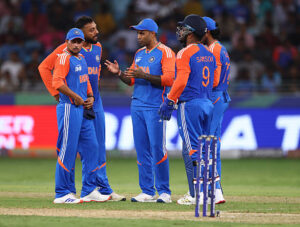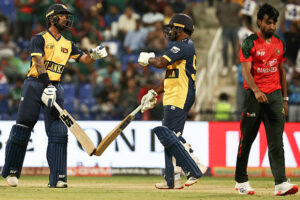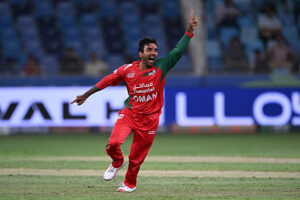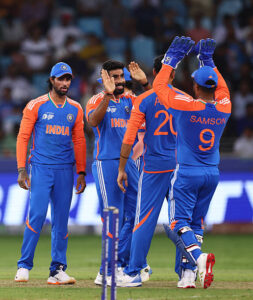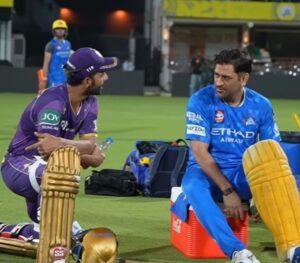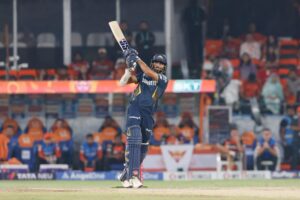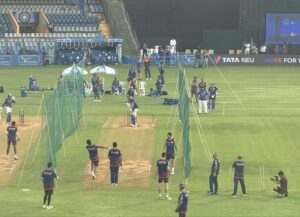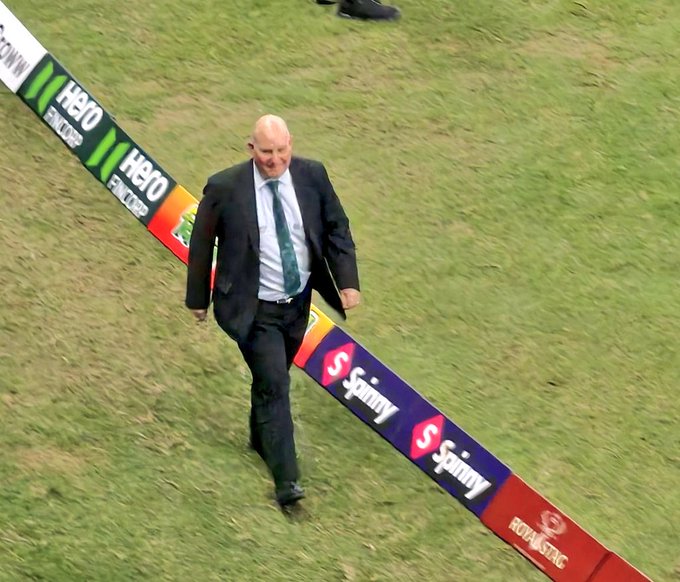Asia Cup 2025 has been thrust into the spotlight for reasons beyond the boundary, with the Pakistan Cricket Board (PCB) at the center of a heated controversy that has gripped the cricketing world.
The drama, which unfolded following a high-stakes clash between arch-rivals India and Pakistan on September 14, 2025, in Dubai, has escalated tensions, culminating in the removal of match referee Andy Pycroft from Pakistan’s upcoming fixtures and threats of a boycott against their must-win group stage match against the United Arab Emirates (UAE).
The saga, rooted in a handshake controversy, has raised questions about sportsmanship, politics in cricket, and the spirit of the game.
The Handshake Controversy: Sparks Fly in Dubai
The controversy erupted during the India-Pakistan encounter, a match already laden with political undertones due to recent cross-border tensions, including the Pahalgam terror attack that claimed 26 lives earlier in 2025.
India, led by captain Suryakumar Yadav, secured a commanding seven-wicket victory over Pakistan, chasing down 128 runs with 25 balls to spare. However, the post-match narrative shifted away from India’s dominance to a contentious decision by the Indian team to forgo the customary handshake with their Pakistani counterparts.
The PCB alleged that match referee Andy Pycroft, a seasoned Zimbabwean official, instructed both captains—Suryakumar Yadav and Pakistan’s Salman Ali Agha—not to shake hands at the toss, citing instructions from Asian Cricket Council (ACC) officials.
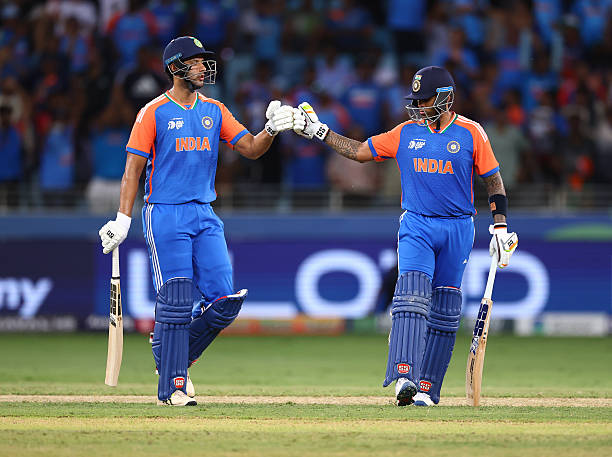
This directive, according to the PCB, violated the International Cricket Council’s (ICC) Code of Conduct and the Marylebone Cricket Club’s (MCC) Laws pertaining to the Spirit of Cricket.
The PCB’s fury was compounded when the Indian team also declined post-match handshakes, a move Suryakumar justified as a gesture of solidarity with the victims of the Pahalgam attack and a tribute to the Indian armed forces involved in Operation Sindoor.
Pakistan’s team management, led by manager Naveed Cheema, lodged a formal protest with the ACC, labeling India’s actions as “unsporting” and “against the spirit of the game.”
In a further act of defiance, Pakistan captain Salman Ali Agha boycotted the post-match presentation ceremony, which was hosted by an Indian official.
PCB chairman and ACC president Mohsin Naqvi escalated the matter, filing a complaint with the ICC and demanding Pycroft’s immediate removal from the tournament.
- Asia Cup 2025 | Andy Pycroft’s Removal & Threats of Boycott
 by CricSprinter
by CricSprinter - West Indies Unveils Test Squad for the Tour against India
 by CricSprinter
by CricSprinter - Apollo Tyres Becomes the New Team India Lead Sponsor
 by CricSprinter
by CricSprinter - Asia Cup 2025 | India Thrashed Pakistan in a Dominant Clash
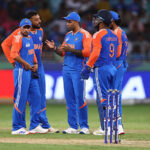 by CricSprinter
by CricSprinter - Asia Cup 2025 | Sri Lanka Beat Bangladesh by 6 Wickets
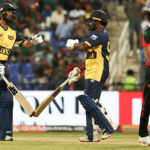 by CricSprinter
by CricSprinter
ICC’s Response and Pycroft’s Removal
The ICC, however, initially rejected the PCB’s demand to remove Pycroft, stating that there were no sufficient grounds to act on the complaint.
Sources within the ICC clarified that Pycroft had not issued any formal directive to prevent handshakes, and Indian team sources corroborated this, asserting that Suryakumar’s decision to skip the handshake was independent and aligned with guidance from Indian authorities.
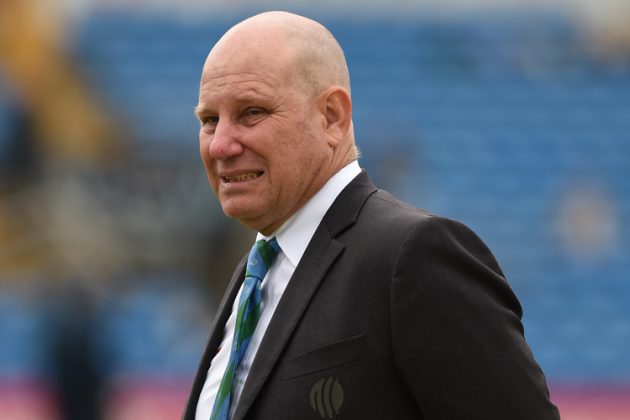
Despite the ICC’s stance, the PCB’s persistent protests and threats to withdraw from the tournament prompted a compromise.
On September 17, 2025, a PCB insider confirmed to Indian news agencies that Richie Richardson, the other match referee appointed for the Asia Cup, would replace Pycroft for Pakistan’s crucial group stage match against the UAE.
This decision was seen as a face-saving measure for PCB chairman Mohsin Naqvi, who also serves as Pakistan’s interior minister.
The move ensured that Pycroft would not officiate any further Pakistan matches in the tournament, although it remains unclear whether he will continue in other fixtures.
Boycott Threats and Uncertainty Surrounding Pakistan vs. UAE
The PCB’s dissatisfaction with Pycroft’s role led to speculation about Pakistan boycotting their must-win match against the UAE, scheduled for September 17, 2025, at the Dubai International Stadium.
Reports indicated that the Pakistan team was instructed to remain in their hotel and not travel to the venue unless the PCB received confirmation of Pycroft’s removal.
The potential boycott posed significant risks, as a forfeiture would grant UAE an automatic win, potentially eliminating Pakistan from the tournament and costing the PCB an estimated USD 16 million in revenue—a substantial blow for a board already grappling with financial constraints compared to the Board of Control for Cricket in India (BCCI).
As the deadline approached, Pakistan resumed training on the eve of the UAE match, signaling their intent to continue in the tournament. However, the PCB canceled a pre-match press conference, and rumors of a boycott persisted, fueled by the team’s delayed departure to the stadium.
The PCB’s deliberations were further complicated by internal disciplinary actions, with Director of International Cricket Operations Usman Wahla suspended for “failing to take timely action” over the handshake controversy.
Voices of Reason and Criticism
The controversy drew mixed reactions from the cricketing community. Former Pakistan cricketer Rashid Latif criticized the PCB’s approach, arguing that targeting Pycroft was misguided. Latif pointed out that the ICC’s Code of Conduct does not mandate handshakes, rendering the PCB’s complaint legally weak.
He suggested that the PCB should have focused on India’s invocation of political sentiments, such as Suryakumar’s reference to the Pahalgam attack, which could have been challenged under ICC regulations prohibiting political statements. “Andy Pycroft is not the issue.
The issue is that military matters were mentioned, political statements were made, and talk of attacks was done. This is what PCB should have raised,” Latif said.
Pakistan head coach Mike Hesson expressed disappointment over the lack of post-match interaction, noting that his team was ready to shake hands but found the Indian players had already returned to their dressing room.
“We were keen to shake hands at the end of the match, but that did not happen,” Hesson said, subtly alluding to the incident as the reason for Salman’s absence from the post-match ceremony.
On the Indian side, Suryakumar defended his team’s actions, stating, “I feel a few things in life are beyond sportsman spirit. We actually stand with all the victims of the Pahalgam terror attack and their families and express our solidarity.”
The Indian camp’s decision was framed as a collective response to national sentiment, particularly in light of the recent terror attack and ongoing military operations.
Broader Implications for the Asia Cup
The handshake row and its fallout have cast a shadow over the Asia Cup, a tournament structured around the high-profile India-Pakistan rivalry.
If Pakistan defeats the UAE, they are likely to face India again in the Super Four stage on September 21, 2025, and potentially in the final, raising the prospect of further tensions.
The incident has also reignited debates about the intersection of politics and sport, with Naqvi criticizing India for “dragging politics into the game” while Indian players and officials argue their actions were a justified response to national tragedy.
The PCB’s threat to boycott the UAE match, though ultimately not acted upon, underscores the fragile balance between cricketing rivalries and diplomatic relations.
The replacement of Pycroft with Richie Richardson for the UAE fixture appears to have diffused the immediate crisis, but the broader impact on Pakistan’s campaign and the tournament’s atmosphere remains uncertain.
Conclusion
The Asia Cup 2025 has been marred by a dramatic off-field saga that has overshadowed Pakistan’s on-field performance. The handshake controversy, the PCB’s demand for Andy Pycroft’s removal, and the looming threat of a boycott against the UAE have highlighted the complex interplay of sportsmanship, politics, and national sentiment in cricket.
While a compromise has been reached to replace Pycroft for Pakistan’s matches, the episode has left a lasting mark on the tournament, raising questions about how cricketing authorities will navigate such controversies in the future.
As Pakistan prepares to face the UAE in a do-or-die clash, the focus will be on whether they can channel their energies on the field and keep their Asia Cup hopes alive amidst the off-field storm.



